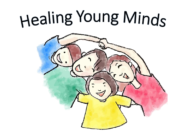As the name suggests, Autism Spectrum Disorder (ASD) is a wide spectrum with no two individuals on the spectrum presenting in the same way. However, there are a few signs that are quite common and may alert you that your child might need an assessment. Taken in isolation, each sign listed below may not indicate that there is a problem at all, but if your child is showing quite a few signs it may be worth consulting a specialist.
Common Signs of Autism in Young Children
- Seems not to hear you when you call their name; doesn’t look or answer.
- Doesn’t smile back at you and/or doesn’t seem to be making usual eye contact.
- Late to speak; doesn’t say their first word by 18 months and doesn’t string words together by 27 months.
- Seems to inspect toys rather than play with them or organises them instead of playing with them. May show interest in parts of the toy rather than the whole toy.
- Has unusual repetitive movements such as rocking, flapping, twirling their fingers, walking on tip-toes all the time. They may also make repetitive sounds or noises such as grunting, howling, or throat-clearing.
- Reacts in an unusual/unexpected manner to sounds/lights/touch/certain textures/smells. For example, they may get very upset in response to a certain smell, or over-excited in response to certain lights.
- They may not look to you for comfort in new or unfamiliar situations.
- Doesn’t show interest in other children in playgroups or nursery and doesn’t share. Seems to prefer to play alone.
- Like to be in control when playing games and to have other children follow their rules.
- Difficulty coping with queues or crowds.
- They may have persistent or recurring difficulties getting to sleep and/or difficulties with feeding/eating due to being very picky or fussy eaters.
Common Signs of Autism in older children/teenagers
- Struggle with minor changes and prefer routine.
- Struggle to start conversation or to keep a conversation going if it isn’t about their interests.
- Find transitions very difficult. This may lead to school refusal particularly following transition to secondary school.
- Get very upset and/or react angrily if their routine changes or if they are asked to do something.
- Have difficulty expressing how they feel and understanding how others feel.
- Difficulty making new friends particularly following transition to secondary school. They may complain that they feel they ‘don’t fit in’.
- Not sharing similar interests to their peers/age-appropriate interests and getting fixated on a narrow range of interests or topics.
- They may have trouble relating to peers their own age and prefer to hang out with younger children or with adults.
- Misinterpreting other people’s comments or behaviour which may lead to them taking offense easily.
- Seem to get anxious over things that their peers tolerate easily. They may get particularly anxious about going to new places or meeting new people or about being in social situations.
- Appear socially withdrawn, prefer to stay at home or to socialise online only.
- Have difficulties planning and/or organising their work.
- Have certain rituals or fixations which may look like obsessions or compulsions.
Final Words
Due to their difficulties with social communication and social interactions and their limited social awareness, children and young people with autism may be particularly vulnerable to social difficulties including bullying, rejection by peers, and exploitation. This may cause mental health difficulties including low mood, depression, and anxiety. Therefore, early recognition is very important and can help reduce the risk of mental health problems developing.
If you are concerned that your child may be developing atypically or showing some of the above signs, trust your instincts and get in touch with a specialist or with your GP. Also, please reach out to us; we have a team of specialised psychiatrists and would be more than happy to do an assessment for you.
You can read more and perhaps donate if this is a cause close to your heart at National Autistic Society

